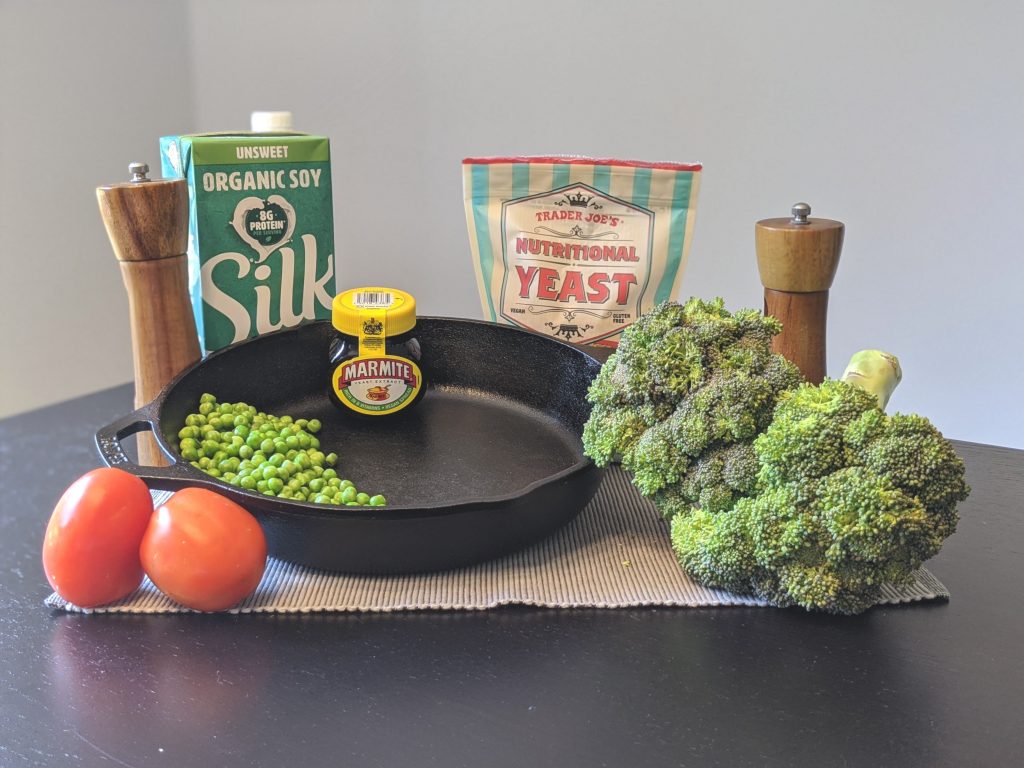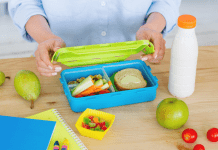You did it! You’ve started out on your journey to a plant-based diet! In Part 1 of Detroit Mom’s Starting a Plant-Based Diet Made Easy, we gave you the basics of how to start and what to eat. Now that you’ve gotten your feet wet and your almond milk is flowing, Part 2 is all about taking your new lifestyle to the next level.
Here, we focus on those essential nutrients meat-free diets need to account for, easy ways to add them to your weekly meals, and the most common plant-based mistakes to avoid.
Important Nutrients for Plant-Based Diets
No matter what kind of diet your family follows, it’s always important to make sure we are creating healthy, nutrient-packed, delicious meals. When eating a plant-based diet, it’s vital to understand what you’re putting on your plate and in your body.
The vegan diet can be a very delicious and nutritious lifestyle but it’s also important to focus on getting the correct nutrients when you aren’t consuming meat or dairy. The three main categories to focus on are Protein, Iron, and B12.
Plant-Based Protein
There are many tasty ways to get the protein you need on a plant-based diet! To understand which foods to stock up on at the grocery store, you first need to understand how our bodies use and breakdown proteins. This short article does a great job of explaining complete and incomplete proteins.
Throughout the day, or the week, work on combining a variety of foods together to create complete protein meals. Try some of these old favorites and new combos:
- PB&J sandwich
- Rice and beans
- Fresh hummus and pita
- Edamame with veggie sushi
- Tempeh bacon (make a yummy TLT — tempeh, lettuce, tomato!)
- Fried rice with plenty of peas, broccoli, and tofu
- Lentils (here are some unique and tasty recipes)
- Fruit smoothie with soy milk
- Pumpkin seeds
Plant-Based Iron
Great sources of iron are all around you! Here is a list of easy to find foods that are a perfect addition to any meal or make great sides. You’ll be happy to see many of our favorite protein packed foods are rich in iron too!
- Beans/legumes
- Chickpeas
- Lentils
- Tofu
- Grains like quinoa
- Oats and oatmeal
- Chia seeds — I throw these in my soothies and voila, iron without even knowing it’s there!
- Pumpkin, sunflower, hemp, and flax seeds
- Figs
- Dried apricots and raisins
- Kale — the age-old favorite!
It’s important for vegans and vegetarians to help increase their iron absorption by eating these foods with vitamin C and to avoid eating them with caffeine. Foods high in vitamin C that pair well with iron-rich foods are:
- Strawberries — throw them in your oatmeal!
- Red Peppers — an easy addition to almost any recipe.
- Kiwis — my son and I often eat one for dessert.
- Oranges — a great one for on-the-go or lunch boxes.
- Broccoli — toss it in some olive oil and sea salt and bake for 15 minutes for a super easy side.
- Brussel sprouts — finely chopped or shaved and you can hide it in a sauce or a patty.
- Blueberries – a smoothie favorite.
- Black bean and poblano pepper tacos — these are a staple in our house.
PRO TIP: Cooking meals in a cast-iron skillet increases the iron levels in your food!
Plant-Based B12
This all-important nutrient is the hardest for those on a plant-based diet to come by, but should not be ignored. While some foods such as nut milks or soy products contain B12, they do not come close to the daily nutritional requirement. The best way to make sure you are getting adequate B12 is through nutritional yeast or vegan spreads (such as Marmite which I buy on Amazon). For those open to eating some dairy, yogurt, cheese, and eggs also contain good amounts of B12.
For additional B12 resources check out:
Medical News Today — Vegetarian and Vegan Sources of B-12
Vegan Society — What Every Vegan Should Know About Vitamin B12
Taking Supplements
Remember it’s okay and important to supplement with whatever you feel you aren’t getting. Speak with your doctor if you aren’t sure.
When looking for plant-based supplements, search for brands that do not contain any gelatin or fish-based products, and are made without dairy. The bottle should read “Vegan” on it and might even have a Vegan Certified logo.
If you aren’t sure where to start my three favorite brands are:
- Deva
- Mary Ruth’s Organics
- Garden of Life
Common Mistakes to Avoid
Don’t replace hunger with carbs. It’s an easy pitfall most people go through! A good way to navigate this is to meal plan. You can also use subscription boxes like Purple Carrot or Hello Fresh which have amazing vegetarian and vegan options. This will help you avoid reaching for another Oreo when hunger strikes (and yes, Oreos are completely vegan!).
Buyer beware of vegan meats. Today, it’s virtually impossible to find a food product that doesn’t come in a vegan form. Everything from hot dogs to ground beef, eggs to sesame orange chicken. These products by brands like Gardien, Field Roast, Impossible Meats, and Chao are real lifesavers but shouldn’t be consumed as everyday replacements. Just like bologna or frozen dinners, these foods are great to have on hand but can wreak havoc on your body if eaten too often.
Time to Start Cooking!
It looks like you’ve got a good start to your grocery list now! Remember, not every meal needs to be perfect and small steps are best while you’re learning all about your new meat-free life!











